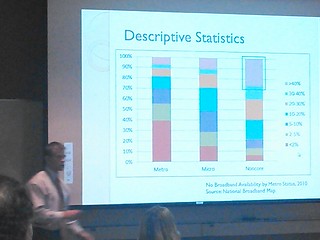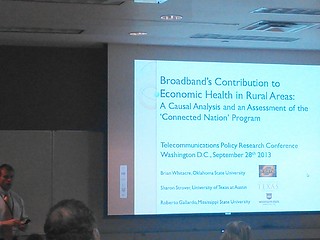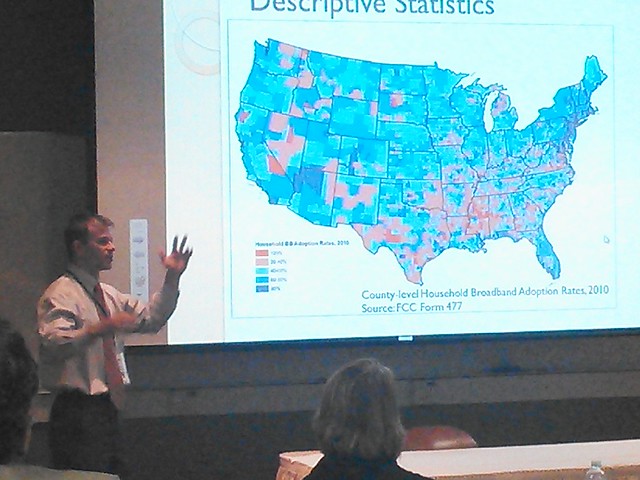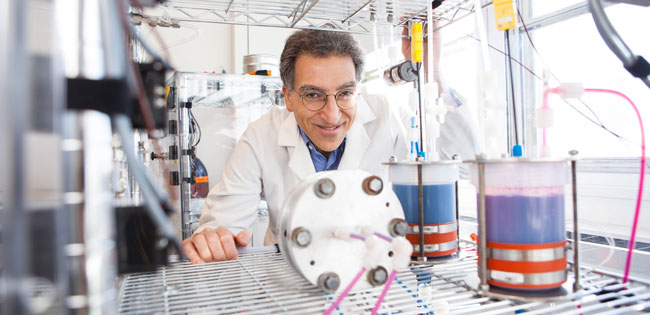 Solar already provides peak power at peak load, and through distribution
is resilient, and that plus ever-decreasing prices will drive solar
deployments up exponentially for a decade or so yet.
If we add an inexpensive metal-free battery,
solar will take over even faster.
And that’s what Harvard’s School of Engineering and Applied Sciences has just
published as a discovery.
Solar already provides peak power at peak load, and through distribution
is resilient, and that plus ever-decreasing prices will drive solar
deployments up exponentially for a decade or so yet.
If we add an inexpensive metal-free battery,
solar will take over even faster.
And that’s what Harvard’s School of Engineering and Applied Sciences has just
published as a discovery.
Harvard SEAS PR of 8 January 2014, Organic mega flow battery promises breakthrough for renewable energy: Harvard technology could economically store energy for use when the wind doesn’t blow and the sun doesn’t shine,
The paper reports a metal-free flow battery that relies on the electrochemistry of naturally abundant, inexpensive, small organic (carbon-based) molecules called quinones, which are similar to molecules that store energy in plants and animals.
And much less expensive, reported CBC News 9 January 2014, Continue reading
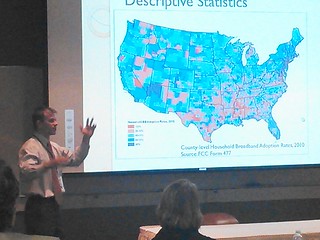

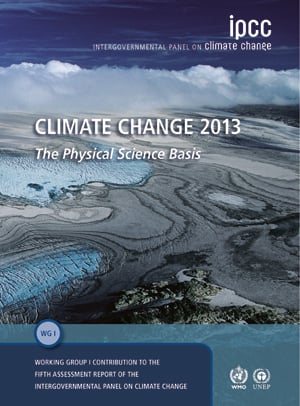


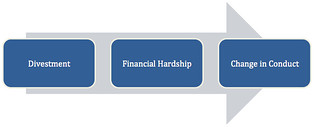


![168292900_900x675[1]](http://www.exposingthetruth.co/wp-content/uploads/2013/09/168292900_900x6751-300x225.jpg)


